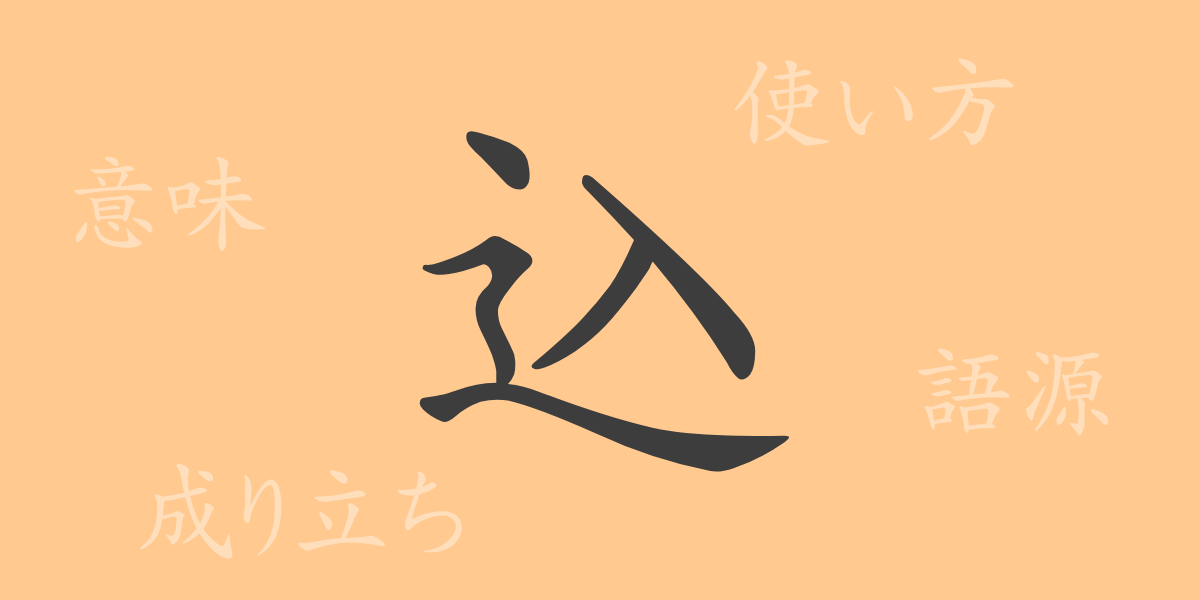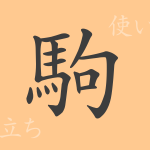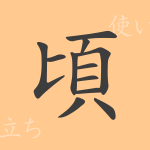Kanji is an indispensable element in the rich expressive world of the Japanese language. Among them, “込(こ.む, ko.mu)” is one of the common kanji frequently used in daily conversations and written expressions. This article explores the history, meaning, pronunciation, and extensive usage of “込(こ.む, ko.mu),” revealing how this single character integrates into the Japanese language.
Origin of 込(こ.む, ko.mu)
The kanji “込(こ.む, ko.mu)” has long been used to express the concept of something entering within or deepening in situation. Originating in ancient China, this character was brought to Japan, where it evolved uniquely and is still widely used today. The shape of “込(こ.む, ko.mu)” combines the character “入(い.る, i.ru)” (to enter) with “辶(しんにょう, shinnyou)” (a radical indicating movement or progress), signifying motion or change.
Meaning and Usage of 込(こ.む, ko.mu)
The kanji “込(こ.む, ko.mu)” represents the act of entering within or the state of being mixed and combined. It is also used to describe internal movements or deepening emotions, such as feelings welling up or situations becoming more complex. In terms of usage, it commonly serves as a suffix attached to verbs to emphasize actions directed inward.
Readings, Stroke Count, and Radical of 込(こ.む, ko.mu)
The readings and basic information of “込(こ.む, ko.mu)” are crucial points for Japanese language learners.
- Readings: The on’yomi (音読み) is “こむ(ko.mu),” and the kun’yomi (訓読み) readings include “こ.む(ko.mu)” and “こ.み(ko.mi).”
- Stroke count: The character “込(こ.む, ko.mu)” has a total of 7 strokes.
- Radical: The radical of this kanji is “辵(しんにょう, shinnyou),” which classifies kanji related to movement or progress.
Idioms, Phrases, and Proverbs Using 込(こ.む, ko.mu)
The kanji “込(こ.む, ko.mu)” is found in a variety of idioms, phrases, and proverbs in Japanese. Here are some examples:
- 心に込める(こころにこめる, kokoro ni komeru) – To deeply embed feelings or intentions.
- 熱が込む(ねつがこむ, netsu ga komu) – To become passionate or excited.
- 手を込める(てをこめる, te o komeru) – To work carefully and meticulously.
- 思いが込められた(おもいがこめられた, omoi ga komerareta) – Reflecting deep emotions or thoughts.
- 人が込む(ひとがこむ, hito ga komu) – A place becoming crowded with many people.
These expressions help convey subtle nuances of Japanese emotions and actions.
Conclusion on 込(こ.む, ko.mu)
The kanji “込(こ.む, ko.mu)” symbolizes the depth of the Japanese language through both its form and meaning. By attaching it as a suffix to verbs, it expresses inward-directed actions and deepening processes, reflecting Japanese culture and thought through idioms and proverbs. The world of expressions expanded by this single character provides a key to deeper understanding and appreciation of the Japanese language.

























